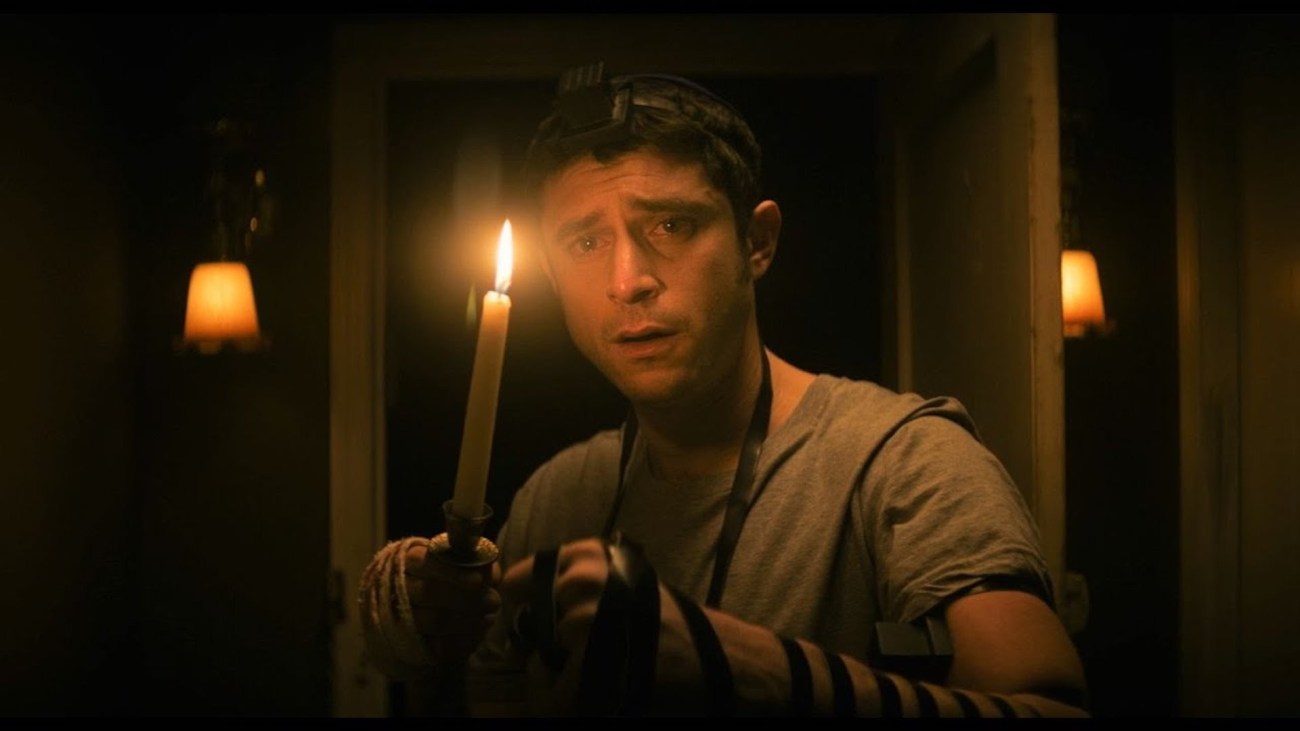What to Watch Verdict
'The Vigil' thrives on its Jewish accentuation but succeeds in the basest horror cinema terms, striking fear through shadowplay, demonic attacks, and the afterlife's gatekeepers.
Pros
- +
🕯️ Confined horror atmospheres.
- +
🕯️ Strong performances.
- +
🕯️ Evils of the flesh and beyond.
- +
🕯️ The Mazik.
Cons
- -
🕯️ The climax may not be the "fight" some desire.
- -
🕯️ Small detail grievances.
The universality of horror languages means The Vigil will haunt and distress audiences with or without Yiddish lessons. Keith Thomas represents Jewishness in horror alongside 2018’s The Golem or 2015’s JeruZalem, but even so, channels greater religious emphasis down to Hasidic consultants. Intersections of heritage, culture, and familiar narrative traumas keep new releases fresh, recalling His House or La Llorona's impact only last year. Death is a woefully human experience, and yet, The Vigil is undeniably Jewish as a robust supernatural standoff. A narrative that ignites, empowers, and educates while executing lockbox terror that mirrors passages from Hereditary to Relic.
Yakov Ronen (Dave Davis) has recently fled the Hasidic community in New York City, but Reb Shulem (Menashe Lustig) persists with his win-back tactics like a lovesick ex. Late one night, Shulman offers Yakov $400 to act as a fill-in Shomer, who reads scriptures to comfort the recently deceased and ward off evil spirits until the body's ceremonial goodbye. Yakov, hard-pressed for cash, arrives at Mrs. Litvak’s (Lynn Cohen) Borough Park unit for the overnight task. Easy money, one might presume. Although those assumptions aren’t considering the possibility of a demon residing in the same location Yakov must perform his soul-saving duties.
From the moment Shulem and Yakov arrive at the Litvak residence, as cinematography cheekily calls back to The Exorcist, confinement begins to choke the air. The Vigil brazenly conducts paranormal punishment on more crowded Brooklyn streets, never underselling the isolation that causes Yakov to tremble. Thomas curates his monster’s backstory, allowing the “Mazik” to flip rigor mortis on-and-off whenever Yakov attempts front-door escape. Bones begin to crunch, fingers freeze in mangled positions, and Yakov screams in agony while the dapper scarecrow with a backward-facing head corrals Yakov back towards imminent doom. Shadows become the enemy, while Thomas skips on Dybbuks or Golems in favor of lesser-represented Mazik mortification. Freedom of creation that mines the depths of rabbinical demonology.
In turn, The Vigil succeeds in varying scare tactics between elderly dementia patients speaking clearer than expected and Mr. Meanie Mizak. Cinematographer Zach Kuperstein early and often frames Rubin Litvak’s cadaver (shrouded under a white cloth) within focal view as audiences anxiously await reanimated motions. Kuperstein sustains an impenetrable sensation of unrest as Yakov hears heavy-pounding footsteps from Mrs. Litvak’s second floor or shines his smartphone flashlight on candlelight stalker outlines. Battles between reality and paranoid delusions plague Yakov, whether that's late-night FaceTime confessionals with new-contact crush Sarah (Malky Goldman) or television programs that mouth warnings through static tubular screens. Thomas and Kuperstein become proficient in the art of frightening from any distance, whether Salad Fingers’ cousin outreaches from darkness or Yakov tumbles into a creaky-jointed heap on the sidewalk, inching a desperate crawl back towards momentary relief, but no safe residential haven.
Thomas indelibly intertwines Jewishness through every step of the story, beyond aesthetic dialects or Star-of-David embroidered sheets. As the Mazik preys upon grief, memories of unpunished hate crimes and Holocaust survivor’s guilt become commentaries on painful ethnic experiences. Peyos become targets, juxtaposed against how Yakov’s tefillin strap-up sequence creates a demon fighter that’s allowed the Jewish equivalent of a boxer’s tape-and-glove montage before one final climactic contest. The Vigil is indefinitely interested in Jewish experiences shaping horror cinema beyond genocidal weights or unjust outsider treatment. These emotional beats become lessons in coping, in the past’s gnarly stranglehold, but also assert their importance in spiritual combat and Yakov’s unholiest clash against wretched inheritances that could only birth from something as devastating as the Holocaust. Thomas doesn’t shy from complicated feelings, how one might honor life-altering pasts while moving on for the sake of healing freedoms.
Not without anecdotes like middle-aged Yakov’s earliest interactions with a smartphone, from texting cadences to googling “How To Talk To Women,” because commentary runs richer than ruination.
The Vigil is a flickering flame that guides down an endlessly dim hallway of haunted house imitators. Performances balance the excessive weights of servitude against the lives altered by hateful men; Dave Davis wages a magnificently contemplative war against the Mazik foe. Lynn Cohen appears from her chambers for grueling senior citizen frights. Keith Thomas’ mission to submerge our welcoming genre in Jewish lore is a rousing success because it’s a passport stamp somewhere uncharted versus another ordinary-to-a-fault walkthrough. Through it all, macabre puppet masters pull strings that cause us to yelp, to shriek, by immersing audiences within rituals that prey upon Jewish fears—Jewishness not as a barrier, but an invitation. A ticket viewers trade for one horrific Judaism crash-course signified by criminally dreadful boogeyman expressionism rooted in tradition yet accessible to our modern age.
The Vigil will be available on VOD February 26th, 2021.
Matt Donato is a Rotten Tomatoes approved film critic who stays up too late typing words for What To Watch, IGN, Paste, Bloody Disgusting, Fangoria and countless other publications. He is a member of Critics Choice and co-hosts a weekly livestream with Perri Nemiroff called the Merri Hour. You probably shouldn't feed him after midnight, just to be safe.












